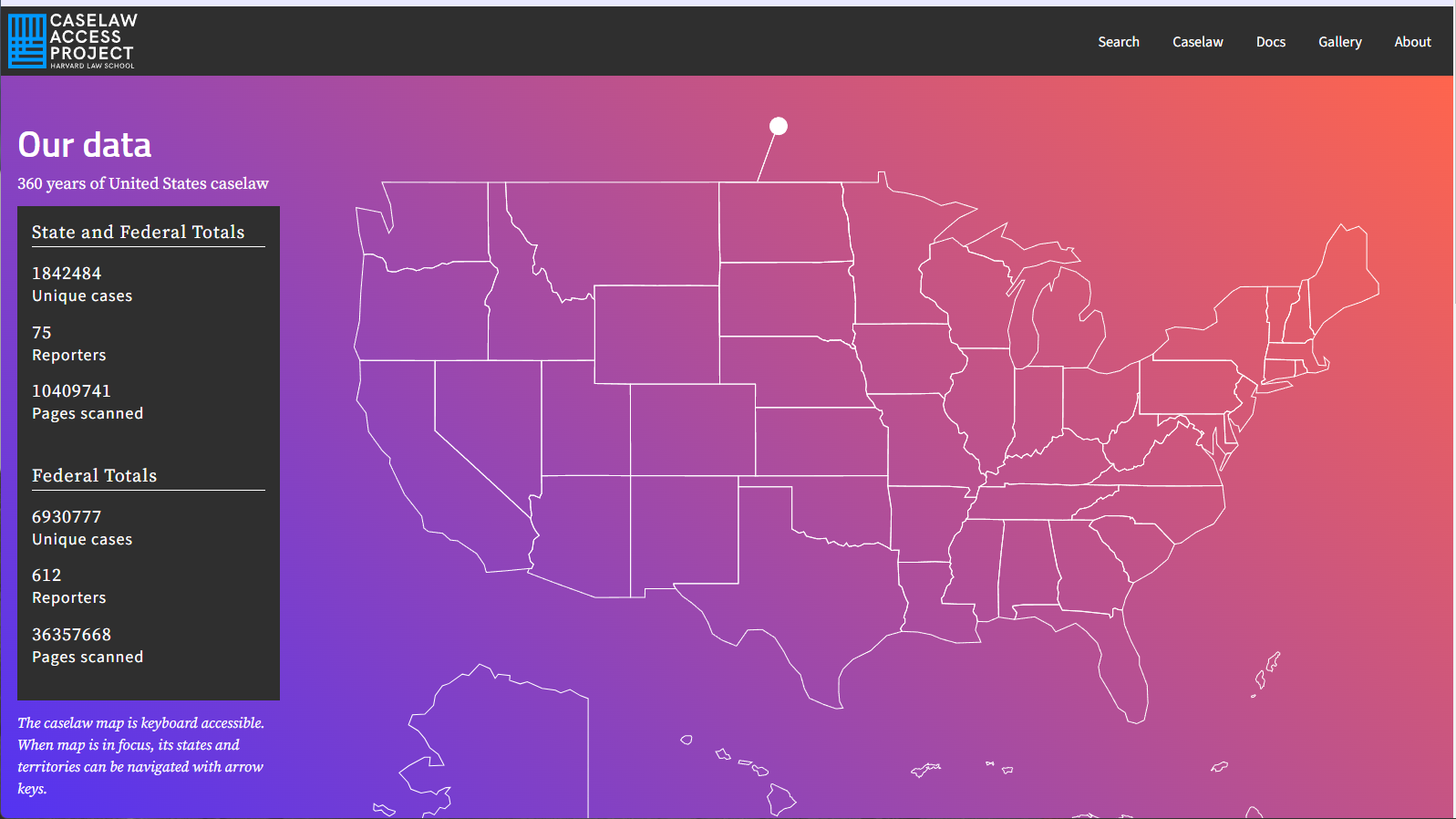Back in 2018, something remarkable happened. The Caselaw Access Project, part of Harvard Law School’s Library Innovation Lab, completed its three-year project to digitize all U.S. case law — some 6.4 million cases dating all the way back to 1658, a span of 360 years.
It was a massive project that scanned 38.6 million pages from 39,796 law books and converted it all into machine-readable text files, creating a collection that included 6.4 million published cases (and which has continued to grow since then).
The project initially received financial support from legal research startup Ravel Law. After LexisNexis acquired Ravel in 2017, it continued that support.
The goal was to make all published U.S. court decisions freely available to the public in a standardized digital format. The cases are available to the public through a basic Caselaw page or via bulk downloads.
However, until this month, CAP’s contractual relationship with LexisNexis limited commercial use of the cases. Under Harvard’s agreement with LexisNexis (and originally with Ravel), LexisNexis retained control over the commercial use of the data through March 2024. Any company that wanted to use it for its own commercial purposes would have to license it from LexisNexis.
The Celebration Will Be Televised
Now, to celebrate the full release of that data from all restrictions, the Library Innovation Lab is holding an event tomorrow, Transform: Justice, that is intended to begin the process of charting the future for access to law.
They have invited advocates, creators and users of open legal data to discuss what the organizers say is an inflection point for open legal data.
“AI is shaking up the way we all think about the power of information and data,” the event’s website says. “Free, accessible, and comprehensive access to the law is foundational to our democracy, and we believe we’re in a moment when big progress can be made.”
From noon to 2:30 p.m. E.T., three panels — all of which will be livestreamed — will recount the history of the project, discuss the future of open legal data, and consider the opportunities ahead.
The panels include a who’s who of speakers from the free law movement. Speakers include Harvard Law Professor Jonathan Zittrain; former Library Innovation law director Adam Ziegler; Ravel Law cofounders Nik Reed and Daniel Lewis; Free Law Project founder Mike Lissner; Legal Information Institute executive director Sara Frug; Angela Jaffee, account director at vLex and former national programs administrator for the Administrative Office of the United States Courts; Carl Malamud, founder of Public.Resource.Org; Harvard Law Professor Alexandra Natapoff; and Chief Justice Mark V. Green of the Massachusetts Court of Appeals.
I will be there and hope to have more to report after the event.
Here is some further reading and listening:
- Project Provides Access to All U.S. Case Law, Covering 360 Years.
- LawNext Episode 18: Adam Ziegler on How Harvard Put 360 Years of Caselaw Online.
- The 20 Most Important Legal Technology Developments of 2018.
- New ‘Historical Trends’ Viewer from Caselaw Access Project Graphs Frequency of Words and Phrases.
- New Legal Research Tool Taps Into Caselaw Access Project’s 6.7M Cases.
 Robert Ambrogi Blog
Robert Ambrogi Blog